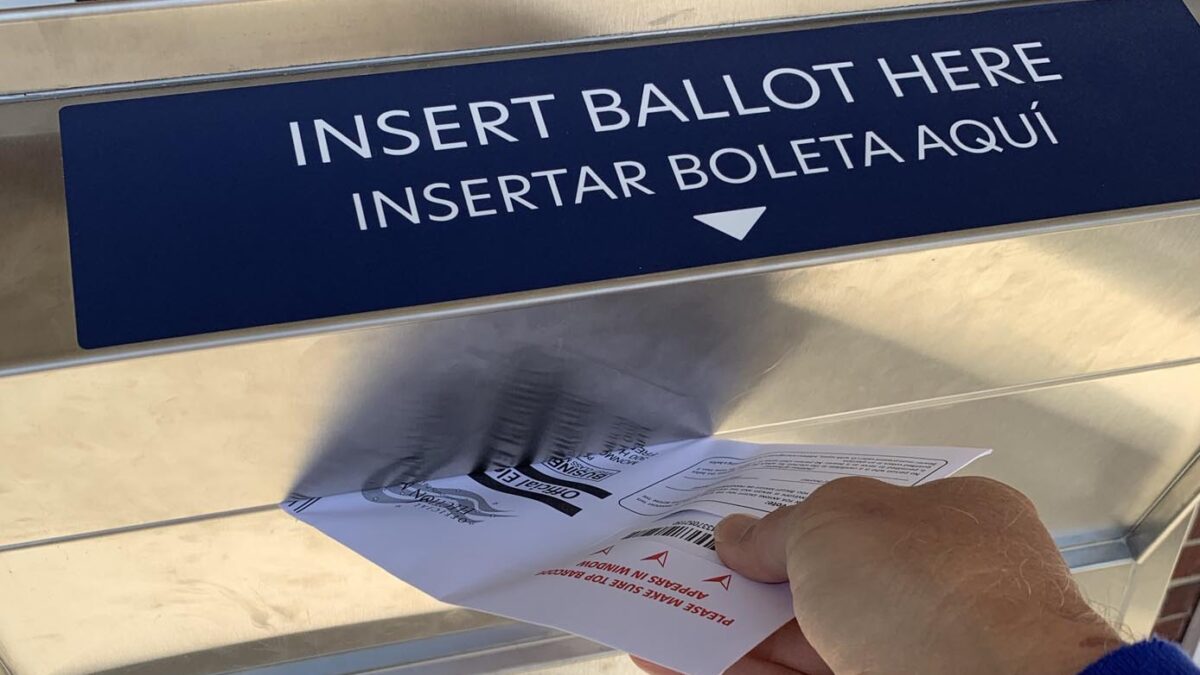We lost the battle on the Foreign Intelligence Surveillance Act (FISA), which federal agencies have used to surveil Americans without warrants, in the House of Representatives last week — barely.
A group of liberty-minded Republicans were fighting to add two major things to FISA: a requirement for a warrant and a ban on federal intelligence agencies from buying American information from online data brokers. In close votes, those attempts failed, which means federal agencies can continue their (illegal) practice of snooping on fellow Americans.
Obtaining a warrant is a vital part of the rule of law and a requirement by the Fourth Amendment of our Constitution to boot.
Stalin would have wished he had something like FISA. Not because of the lack of warrants — the KGB definitely didn’t care about that — but because of something just as, if not more, sinister: the government’s practice of buying American citizens’ data from data brokers.
Data brokers collect an obscene amount of data on everyone who uses the internet. The types of places we’re searching on Google Maps? Collected and sold. The type of content we read the most often? Collected and sold. The ads we don’t skip over? Collected and sold. Even key words we say in conversations that our phone mics pick up — collected and sold. Worse, we willingly give this information away every time we hit “accept all” on terms and conditions — terms and conditions we must accept to use pretty much any part of the internet.
This data is conveniently packaged into profiles that let advertisers more accurately target us — ostensibly so we have a better advertisement experience and so advertisers can be more efficient in their use of funds.
But this information also gives our intelligence agencies an unprecedented glimpse into our lives, habits, likes, the people we interact with, and so much more. Worse yet, a warrant may not be needed to obtain this information since it’s freely given to the data brokers and freely sold by them to our intelligence agencies.
This is the part of FISA Stalin wishes he had.
We all know the KGB was a horribly tyrannical police force that silenced political opposition, dissent, or even just discussion. But the KGB was practically nothing without its network of informants, both paid and unpaid.
My grandmother grew up in communist Czechoslovakia. Her father was a public figure who refused to become part of the Communist Party, and so party members were always looking for dirt on him or an excuse to bring him down. Every day, my grandmother’s teachers would ask her and her sister — as young as age 7 when this started — if their father had “said anything” last night about the history lessons they had taught the day before.
He had, of course. He was undoing the “communist history” that my grandmother was being taught and instructing her on Czechoslovakia’s actual history, but luckily for my great-grandfather, my grandmother never ratted him out.
How easy would it have been to catch him if the Czech police could simply have purchased keyword data from his phone, his Alexa, or one of the many other devices in modern houses that have microphones?
The Communists did eventually get my great-grandfather on trumped-up charges, so he escaped the Czechoslovak Socialist Republic with his wife and two daughters. Luckily for me, he eventually made his way to America, a land governed by the Constitution where nothing like that could happen, he thought. I’m told he always said that if he couldn’t live in the land of his birth, he wanted to live in America, where the Constitution limited the government and understood the corrupting power of, well, power.
Frustratingly, we are on the path today for a similar network of surveillance. If the government can just buy our information from data brokers, what need is there for informants — whether they’re the neighborhood busybody, children, or undercover policemen? For better or worse, our devices are embedded in every part of our daily life, and they collect all of that data. If our government can just buy the data on us, then they effectively have the capability to surveil us at a level equivalent to Xi Jinping and the CCP, save one difference: They’re spending (likely significant) taxpayer funds to do so.
The data is sold, not seized. Data brokers are likely making significant profits selling out their fellow Americans or, even worse, overseas data brokers are making money off of selling American data to the American government. Any way you look at it, it’s a good deal for the data brokers and a bad deal for us.
So, with FISA reauthorized, what can be done? Are we doomed to another two years, or more, of illegal surveillance, the purchase of our data by government agencies, and the flow of taxpayer dollars to the people who buy and sell our data?
Luckily for Americans, there is a path forward. Later this week, a bill will be up for a vote that will prevent federal agencies from purchasing our data on the open market: the Fourth Amendment Not For Sale Act by Rep. Warren Davidson.
While it would have been better to win the fight for our privacy directly in the FISA reauthorization, this policy, which would block agencies from buying our data and stepping around warrant requirements, is necessary for the health of our free society. Without it, the government will continue, and likely expand, its practice of buying data on us — everything from the people with whom we interact to keywords spoken in our houses to what kind of materials we buy.
We don’t want to go down that path.









